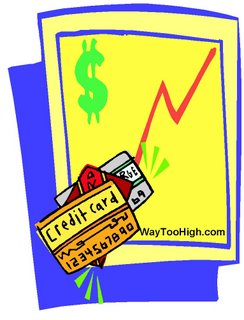The Associated Press reports the MasterCard Inc. planned IPO is "mostly as a defensive measure to combat antitrust lawsuits."-----
Move seen as method for organization, banks to limit liability
JOE BEL BRUNO - Associated Press
NEW YORK - An initial public offering of a big credit-card outfit might not command the hype afforded a white-hot tech company, but the move could prove priceless for MasterCard Inc. and the big banks that own it.
This week the 1,400 banks that issue its cards -- and together control the brand -- approved a series of proposals that clear the way for an IPO on the New York Stock Exchange early next year. Although the vote is considered a common step for companies going public, analysts and former executives of the nation's No. 2 credit-card brand say this won't be your average IPO.
For starters, the amount of money raised -- estimated conservatively at about $2.5 billion -- will easily trump the $1.67 billion raised by Internet darling Google Inc. And, unlike most IPOs, MasterCard is tapping the capital markets begrudgingly -- and mostly as a defensive measure to combat antitrust lawsuits.
"The paramount reason for them going public is to reduce their legal liability exposure in the U.S. market, period," said Eric Grover, an analyst with corporate consultancy firm Intrepid Ventures.
Both MasterCard and larger rival Visa USA have been accused of anticompetitive practices in dozens of class-action lawsuits that could cost billions of dollars to settle. The architects of MasterCard's plan to go public are betting the IPO will take the wind out of those lawsuits.
After converting to a public company, member banks will give up voting rights -- effectively shielding them from being named in future lawsuits. The move also ends any criticism of the banks having too much influence in MasterCard's operations.
Besides getting a new structure, MasterCard plans to bank $650 million from its IPO proceeds into a war chest to fight pending litigation. The biggest legal challenge are 38 federal lawsuits that claim MasterCard and the banks conspired to artificially inflate interchange fees charged by card companies to merchants.
Already, MasterCard and Visa have paid some $3 billion in damages from a class-action lawsuit led by retail giant Wal-Mart Stores Inc. They've also lost a legal challenge mounted by the Justice Department, which paved the way for rivals American Express Co. and Morgan Stanley's Discover unit to sue for damages.
These legal hurdles have made member banks increasingly nervous through the years, said former MasterCard general counsel Brian Smith.
"When I was there, we had a number of cases and investigations that were brought against individual banks, which have a chilling effect on their executives," said Smith, who served as the company's top attorney from 1974 to 1982 and is now a Washington, D.C.-based senior partner with Latham & Watkins.
He said the next step for MasterCard might be allowing member banks an opportunity to cash out completely -- and instead enter into licensing agreements to continue using the brand. JPMorgan Chase & Co. has an 11.7 percent stake in MasterCard, Citigroup Inc. owns 6.2 percent, and Bank of America Corp. has 6 percent, filings show.[Source: AP, Charlotte Observer ]





